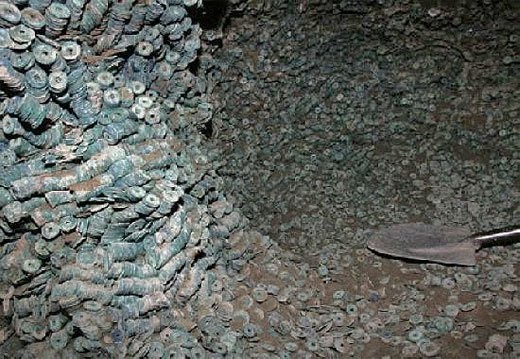A significant archaeological discovery was made in Baishui County, Weinan City, in northwest China’s Shaanxi Province: an ancient coin cellar from the Northern Song Dynasty (960-1127). Approximately 100,000 coins, weighing 460 kg, were uncovered, indicating the owner had an unusually large quantity of currency for that time.
Historical Context
Experts believe the coins belonged to an old-style private bank that buried them during conflicts to protect their wealth. This practice reflects the economic climate of the Northern Song Dynasty, which saw the rise of private banking as wealthy individuals sought to safeguard their assets amid war-related uncertainties.

Economic Implications
The sheer volume of coins suggests a thriving economy, providing insights into trade routes and currency distribution during this prosperous era. The hoard underscores the cultural significance of wealth preservation and the relationship between financial institutions and socio-political stability.

Future Research
Ongoing analysis of the coins aims to reveal more about their origins and minting practices, enriching our understanding of the Northern Song Dynasty’s financial history and the complexities of wealth management in ancient China.

